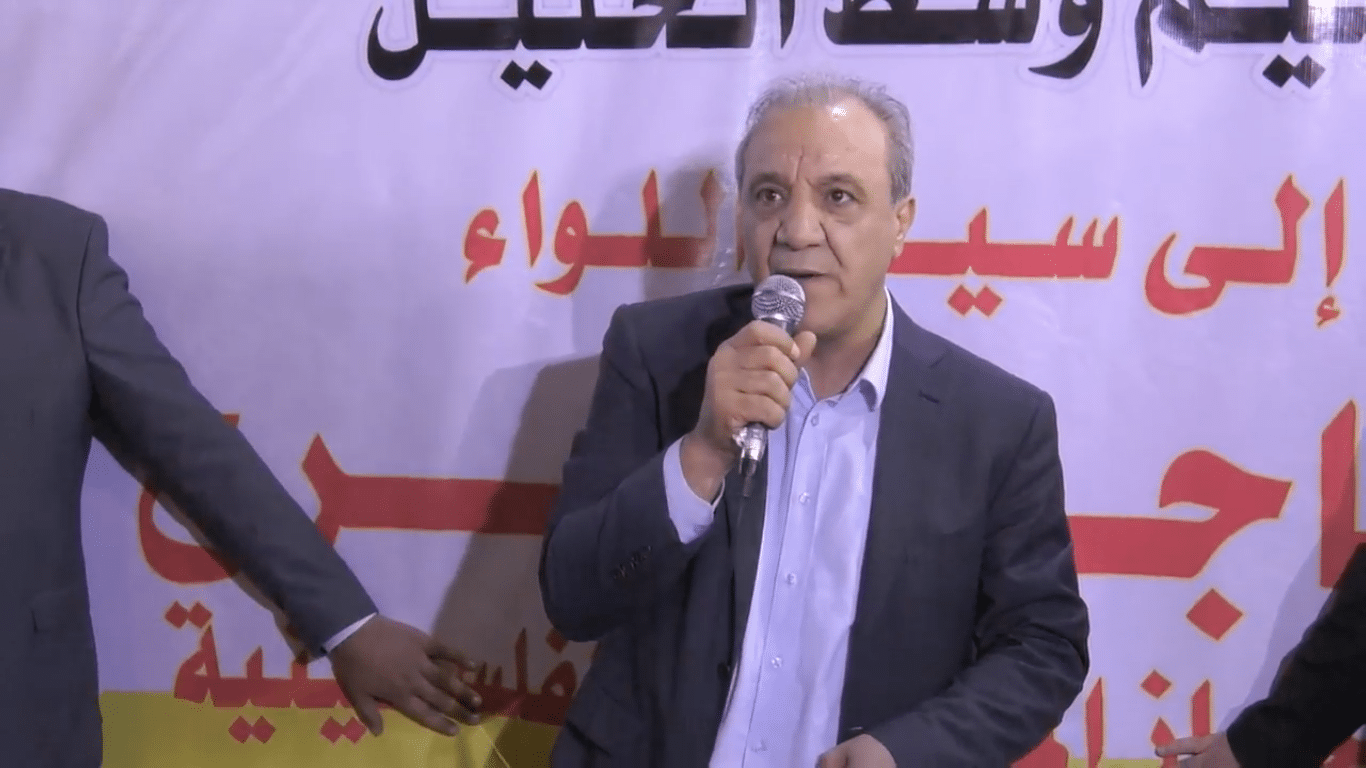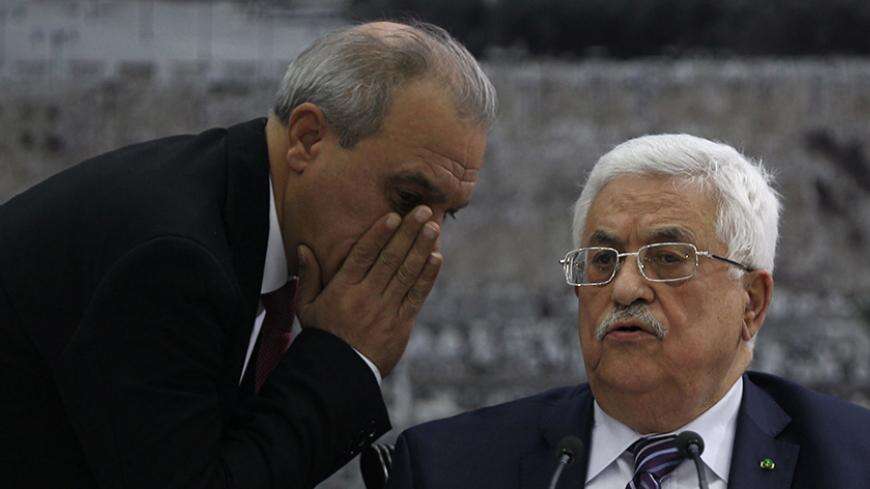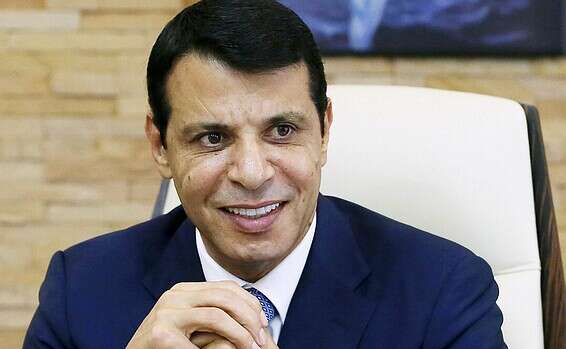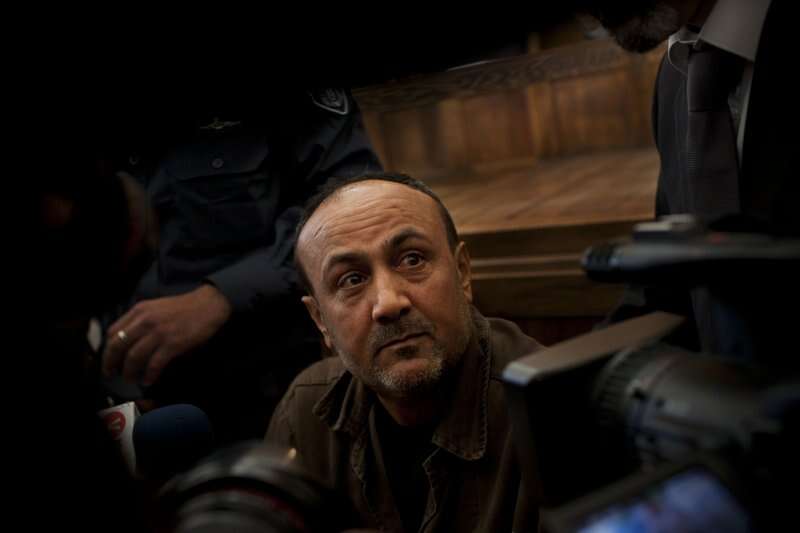In a world in which the stars align according to the good guys and the bad guys, Majid Faraj and Hussein al-Sheikh would have been a shoo-in as heirs to Mahmoud Abbas. The two are the closest to the Palestinian Authority President: Faraj is head of the Palestinian General Intelligence Service and Sheikh is the Palestinian Authority's civil affairs minister. They both maintain close contacts with Israel and they are both confidantes of Abbas - in many respects, they are his shadow. From the point of view of the Israeli defense establishment the possibility that the two will act together as Abass' heirs following the departure of the Rais - who is now 86 and suffers from ill health - is the optimal scenario.
Follow Israel Hayom on Facebook, Twitter, and Instagram
But the security establishment understands full well that reality on the ground is far more complex, as the pair's popularity in the political halls of power in Israel is in direct contrast to their status on the Palestinian street. Many there see the two as collaborators with Israel, and on social networks, there have been allegations of corruption among the Palestinian leadership. Israel on the other hand sees them as the "good guys."
Faraj, 60, was born in the Deheishe refugee camp and is very close to Abbas and to his son Yassir (who is based in Qatar). He has been close to Abbas for over a decade and has conducted missions, both open and secret for the PA leader. He is fiercely opposed to Hamas and coordinates security cooperation with Israel for Abbas. In the first Intifada, Faraj was one of the leaders of the PLO and was arrested several times, spending a total of six years in Israeli prisons.
He also was active in the Second Intifada, when he tried to recruit female soldiers to act as sources. But after being appointed as head of the Palestinian General Intelligence Service in the West Bank, he began to move closer to Israel and his many diplomatic and security contacts with Israelis - including with Benjamin Netanyahu - have moderated him.

Sheikh, who also is opposed to Hamas, is currently responsible for the PA's contacts with Israel in the civil sphere. He speaks fluent Hebrew and has close ties with senior military officers and politicians. He has declared that the Palestinian leadership would be happy to make history with Defense Minister Benny Gantz and others in the coalition just as they did with the Yitzhak Rabin.
Sheikh and Faraj were both with Abbas at his recent meeting with Gantz at his home in Rosh Ha'ayin. They both have also met with Foreign Minister Yair Lapid and are acceptable to the Americans and have ties with the CIA. Several years ago, the United States even gave Faraj an award for information that he handed over which led to the capture of a senior al Qaeda operative.
Recent months have seen a major development with Abbas beginning to divide up the pie of power among his confidantes, and he has promoted Faraj and Sheikh ahead of the day when he descends from the political stage and hands over his powers. According to sources in the PA. Sheikh's recent appointment as a member of the PLO Executive Committee is a preliminary step on the way to a far more significant appointment as Secretary-General of the PLO, a position that until 16 months ago, was filled by Saeb Erekat who died of complications of the coronavirus.
Two weeks ago, another Abbas confidante, Rawhi Fattouh, who served for a short period as interim President of the Palestinian Authority following Yasser Arafat's death in 2004, was nominated two weeks ago by the PLO Central Committee (the ruling party in the PA) as Chairman of the Palestinian Council, the Palestinian parliament representing Palestinians in the territories and overseas.
Abbas has complete control over the PLO Central Committee, which gave him a renewed vote of confidence. The PLO Executive Committee (the organization's highest executive body, which acts as the PA government) is expected to confirm the votes on al-Sheikah and Fattouh.

Although he has yet to make any official announcement, Abbas' moves point to him rapidly promoting Faraj and Sheikh to controlling positions, at the moment alongside him, and in the future perhaps in his place. Faraj will continue to deal with security issues in the PA while Sheikh will continue to be responsible for the diplomatic arena. Sources in the PA believe that the two plan to pass an amendment that will determine that the PLO Central Committee which is scheduled to convene about a month-and-a-half from now, will be the body to elect the next Palestinian president. The two have a large measure of control in the council. At the same time, others have been distanced from the corridors of power due to their support for the candidacy of Marwan Barghouti for the presidency, among them Fahri Barghouti and Nasser al-Qudwa, a former Palestinian foreign minister and Yasser Arafat's nephew.
This, on paper at least, is Abbas' plan, one that Israel and the United States view favorably. However, the reality on the ground does not necessarily correspond with this outline. Pinhas Inbari has been researching and documenting Palestinian society for the past 50 years. He has authored many books and studies about the Palestinians and is currently an analyst with the Jerusalem Center for Public Affairs, notes that the potential heirs to Abbas - both from his camp and his rivals - suffer from similar weaknesses: "Each of the candidates is strong in a particular district with which they are identified and where they were born and grew up, but they have all failed to transcend and increase their base of support to attain the status of a leader acceptable to the entire Palestinian society."
"Faraj," Inbar notes, "is strong in Deheishe but not in Ramallah, Hebron, or Nablus. Sheikh, who is originally from the Jilazun refugee camp, does not have a clan behind him. [Marwan] Barghouti, who is currently serving five life sentences and sees himself as a candidate for the presidency is well ensconced in the Ramallah governorate but is weaker in other areas. Jibril Rajoub, a former head of the preventative security service, born in the village of Dura, has lost ground even on home turf, while Mohammed Dahlan, a former senior Fatah leader and head of the preventative security apparatus in the Gaza Strip, who is Abbas' greatest rival, is not even located in the West Bank.
Dahlan is currently a senior advisor to Mohammed bin Zayed, the Crown Prince of Abu Dhabi, and for years has been buying himself - literally - influence in the refugee camps in the West Bank and Lebanon. Dahlan's money serves primarily to buy arms and in that way, he has succeeded in building up power bases in Jenin, in the Balata refugee camp, the Qalandia refugee camp near Jerusalem, the Al Am'ari camp near Ramallah, and elsewhere in the West Bank.
Mahmoud al-Aloul, Abbas' official number two and his deputy in the PLO, is also a candidate in the succession struggle, however, he is strong only in the Nablus area and the Balata refugee camp and his recent attempt to tie up with Faraj and Sheikh ended in failure."

Inbari believes that we may well see a counter-axis headed by Dahlan and the Barghouti clan - each of whom conducts separate contacts with Hamas - emerge against the Faraj-Sheikh axis. "We are already seeing first signs of a tripartite axis of Hamas-Barghouti-Dahlan," says Inbari noting that in Jenin all the militias - Islamic Jihad, Hamas and Fatah - united against the Palestinian Authority "with Dahlan operating in the background in Jenin to finance and purchase authority for himself with the Fatah Tanzim."
'There will be a civil war'
These two emerging power bases are already behaving on the ground as enemies. In November, the Palestinian General Intelligence headed by Faraj arrested dozens of Dahlan supporters in the West Bank. In the same month, a Dahlan loyalist by the name of Hatem Abu Rizak was killed in the Balata refugee camp. Dahan's supporters claim he was shot with a bullet to the head by PA special forces. In the same period, Faraj's forces raided the Al Am'ari refugee camp nearby to al-Bireh and arrested pro-Dahlan activists.
The atmosphere in the refugee camps is very hostile toward Abbas and his people. Palestinian and Arab affairs researcher, Yoni Ben Menachem, spoke recently with a Fatah activist and heard about his feelings: "There are sleeper cells, there are families that are waiting for the day Abbas goes, accounts are being settled, there are people that have been killed, there are people that are impatiently for Abbas to die, there are people that are waiting the Israeli security umbrella given to some of the Palestinian leadership to be exposed.
"There will be a civil war here. Sometimes I feel sorry for the Palestinian security officers, everybody who was involved in the shedding of Palestinian blood. You would not believe the intensity of hatred and anger against Abbas and the Palestinian security apparatus, and those who have spilled Palestinian blood, among the residents of the refugee camps in Balata and Al Am'ari. They are waiting for the right moment to eliminate these people."
Last November the Palestinian Authority launched a military operation in an attempt to regain control of the Jenin governorate, both inside the town and in the villages and refugee camps, but they had only limited success. The operation ended with a hudna, a temporary ceasefire, between Ramallah and Jenin.

Before that, there were gunfights in the Jenin area between the Palestinian Authority and Hamas, Islamic Jihad, and the Al Aqsa Martyrs Brigades, who on several occasions fired shots at the Muqata compound, the Palestinian Authority headquarters in the town. The PA was even forced to release from arrest Muhammad Zubeidi, the son of Zakaria Zubeidi, the former commander of the Al Aqsa Martyr Brigades who last Rosh Hashanah fled the Gilboa Prison together with five other inmates. The younger Zubeidi was arrested together with two of his friends by PA intelligence, but immediately afterward gunmen poured out of the alleyways of the refugee camp, attacked Palestinian policemen, and threw IEDs at the Muqata compound. Zubeidi was released.
Inbari believes that the next PA president will not be chosen by the PA institutions, by Abbas or by Israel, but by the Kalashnikov. "The gun will talk," says Inbari. "Faraj and Sheikh, who are favored by Abbas, Israel, and the United States, may be strong in the media, and for the moment they are benefiting from the support provided by Abbas, but on the ground they are not they are not so strong."
Q: Where is Israel in this power game?
"Israel has its desires and preferences. It is careful not to express them in public and that is a good thing. Israel needs to be careful. It must refrain from the perception that the Palestinians will behave like Europeans; that it has friends there to engage in give and take with. In the meantime, we have no real friends there, so we have to maintain the situation, and what we have at the moment is Abbas - and that is not insignificant. We have to keep our eyes open all the time and understand that whatever happens in the PA after Abbas will have a big impact on us as well."
Q: What is Abbas' health condition really like?
"Abbas has suffered a serious heart attack and is also suffering from other age-related illnesses. He has surprised many people with the speed of his recovery, but age is not on his side.
Q: Is it possible that we will see scenarios of a joint leadership or a compromise candidate without aspirations for leadership who won't threaten the other candidates?
"Joint leadership? In my opinion, there is no such option. As for a compromise candidate, that is a scenario I wouldn't rule out."
Barghouti's shadow
Abbas was elected in 2005 and has been in office for 17 years. In 2000 his tenure was extended without limit, and since then, on various pretenses. he has postponed presidential elections again and again. "If he is lucky, he will continue for at most another year or two," says an Israeli source familiar with the matter. "Recently we have seen that some members of Abbas' close circle have been transferring private funds to accounts in Europe and the United States. This is another sign that points to Abbas' reign coming to an end, that he won't manage to hold on to the reins of power for much longer. Those transferring their funds overseas apparently believe that soon Abbas won't be relevant and that they need to guard their funds and themselves for the day that Abbas will no longer be around to protect them.
"The growing tensions in the refugee camps, in Nablus, Jenin, and Ramallah and in the villages - where there are often nighttime battles between the various camps - and the large number of weapons in the hands of the factions affiliated with the various candidates - show that the decisive hour is approaching." The PA's weakening governance, adds the source, can also be seen in the clashes between clans that include gunfights, as happened, for example, in Hebron between the Jabari clan which is identified with Jordan, and the Qawasmeh clan, which is identified with the PLO.
Tensions are running high in the PA head of the eighth convention of the Fatah movement on March 21. Abbas and his confidantes Sheikh and Faraj are planning a number of measures to weaken Barghouti - who even from the confines of an Israeli prison casts a threatening shadow over them. Faraj recently persuaded the CIA and the Israeli Shin Bet that Barghouti was and remains a terrorist and that if he is freed from jail and elected to the presidency he will cancel security cooperation with Israel and the United States.
Barghouti himself has enormous influence over the goings-on in Israeli jails and security sources believe that the inheritance battles over the inheritance will also impact the situation inside the prisons. It is possible that against such a backdrop, we will see strikes, riots, and various protests by the prisoners.
Hamas is not sitting idly by either. In negotiations with Israel over the release of its citizens held in Gaza and the bodies of soldiers killed in action, it is insisting that Marwan Barghouti be included in any deal. Hams believes that if Barghouti, one of the architects of the terrorism of the Second Intifada, and in the eyes of many Palestinians a "Palestinian Nelson Mandela" is out of jail he will trounce Abbas and his people. Polls conducted by the Palestinian Center for Policy and Survey Research over the past year indeed give Abbas support levels of just 10 to 25%, while Barghouti receives levels of 22 to 34% support. Abbas of course is not thrilled, to put it mildly, with the possibility that his great rival will be released and stand against him or his people.
Subscribe to Israel Hayom's daily newsletter and never miss our top stories!




